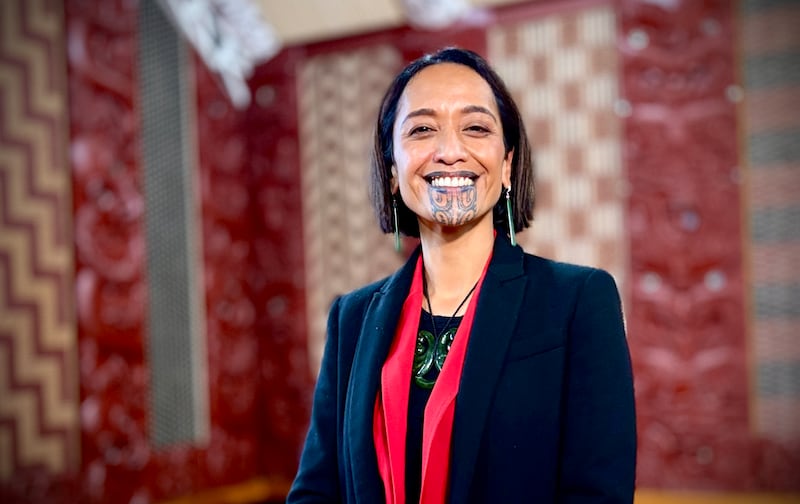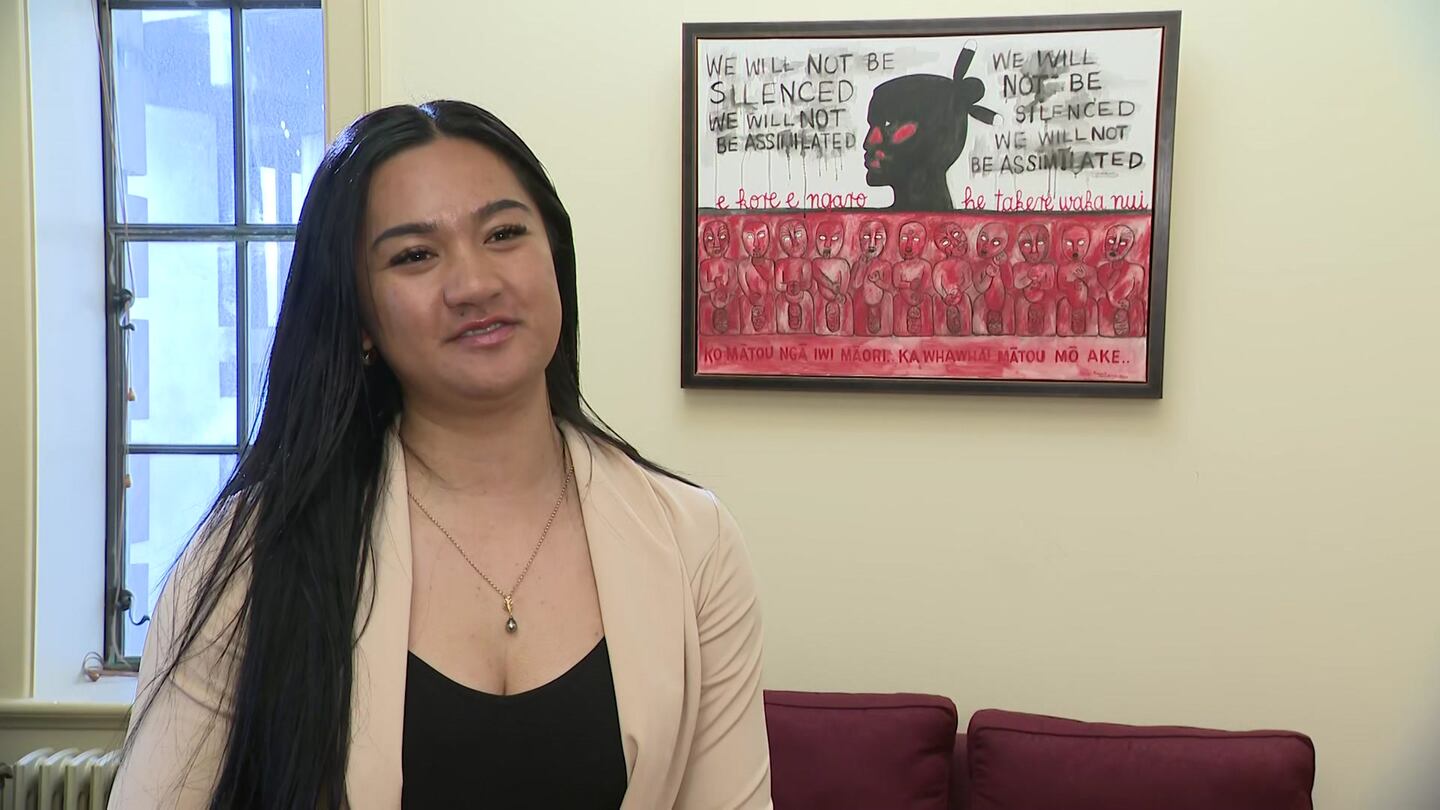Since its decisive Tāmaki Makaurau by-election victory and the fallout from Takuta Ferris’ controversial social media post, Hauraki Waikato MP Hana-Rawhiti Maipi-Clarke fronted questions from Te Ao News while the party’s co-leaders weren’t at Parliament on Wednesday.
Maipi-Clarke acknowledged the pressure of the past week but said the party remained energised by Oriini Kaipara’s historic win.
Maipi-Clarke described Kaipara’s success as a moment of pride for te ao Māori.

“Tino harikoa ana te ngākau i te wikitōria o Oriini i ngā rangi kua pahure ake nei. Ko ia te raukura tuatahi o te aho matua katoa, ka tatū mai ki te whare pāremata,” she said.
While celebrating the milestone, she noted voter turnout — just 27.1 per cent — remained a concern.
“Koinei te hua o ngā pōti iti, engari ko te manako ia, hei te tau whai pōtitanga 2026 ka koke atu tātou te iwi Māori ki ngā pouaka pōti,” she said.
Ferris’ post and backlash
Te Pāti Māori MP Tākuta Ferris drew condemnation after a social media story showed Labour MPs and volunteers campaigning in the by-election with the caption:
“This blows my mind!! Indians, Asians, Black and Pākehā campaigning to take a Māori seat from Māori.”
At the time, Te Pāti Māori said it did not condone the language, asked Ferris to remove the post, and issued an apology “for any hurt it has caused.”
But in a late-night livestream on Tuesday, Ferris doubled down, saying it was “unacceptable” for non-Māori to campaign to “take a Māori seat from the Māori people.”
“The Māori seats are for Māori voices only, they’re for the Māori people to decide,” Ferris said.
He argued the issue reflected attempts to homogenise Māori as “just another minority group” rather than tangata whenua with distinct rights under Te Tiriti o Waitangi.
Maipi-Clarke said Te Pāti Māori co-leaders had already spoken to the Labour and Green Party leaders on the issue, but that a formal statement would be made in due course.
“For me personally, I didn’t make that post, I didn’t share that post, but I think we’ll wait for our party leaders to make those comments,” she said.

When asked if she supported Ferris’ comments personally, she said things online could be taken out of context.
“In a digital world that we live in today, when you write captions on something, they can be easily transformed into something or perceived or taken the wrong way and wrong narrative,” she said.
She added that it is the danger of posting on social media because the intention might be one thing, but it comes across differently.
Political reaction
Labour leader Chris Hipkins said he “absolutely condemned” Ferris’ remarks but had received another apology from Te Pāti Māori leadership. Labour MPs Peeni Henare and Willie Jackson earlier described the post as “racist.”
Green Party co-leader Marama Davidson said the comments were harmful to migrant and immigrant communities who work alongside tangata whenua on kaupapa such as Māori wards, while National’s Tama Potaka called the remarks “very prejudicial, discriminatory and unreasonable, sometimes they come from a very dark and dank place.” NZ First leader Winston Peters described them as “terribly racist” and “disgraceful.”
Unity across the left
Despite the controversy, Maipi-Clarke said the by-election result showed Māori want political unity.
“We are what te iwi Māori wants to see kotahitanga across the left, so that we can get this government [out],” she said, pointing to cooperation with the Greens and Labour on a range of different kaupapa.
Labour has indicated it wants to meet Te Pāti Māori following the by-election, despite sharp criticism of Ferris’ stance.
Maipi-Clarke said she remained hopeful about a constructive relationship.
The victory is also couched with the loss of Takutai Moana Tarsh Kemp, a long-serving party member.
“Not only have we been going through a campaign and also off the back of the second suspension, but also through grief of losing one of our members, so we’re strong, but at the same time there’s been a lot of challenges,” Maipi-Clarke said.
Media relations
The controversy has also played out in exchanges with journalists, after some outlets were not allowed access to the party on election night or were not provided with interviews.
Co-leaders have accused parts of the media of “predatory behaviour.”
Maipi-Clarke said at times in the current landscape, the tone and approach of reporting had at times become unsafe.
“Those kinds of interactions can be quite dangerous, especially in a political landscape like this. You can still ask me politely and use your manners. It’s nothing personal to any media themselves, but the attitude that you should have towards people should be a bit more human,” she said.
She also noted the resignation of Green MP Benjamin Doyle underscored the toll media and online scrutiny can take.
“That shouldn’t be the reality for someone who wants to be in Parliament”, she said.
Despite the scrutiny, Maipi-Clarke said Kaipara’s arrival in Parliament would bolster Te Pāti Māori’s strength.




